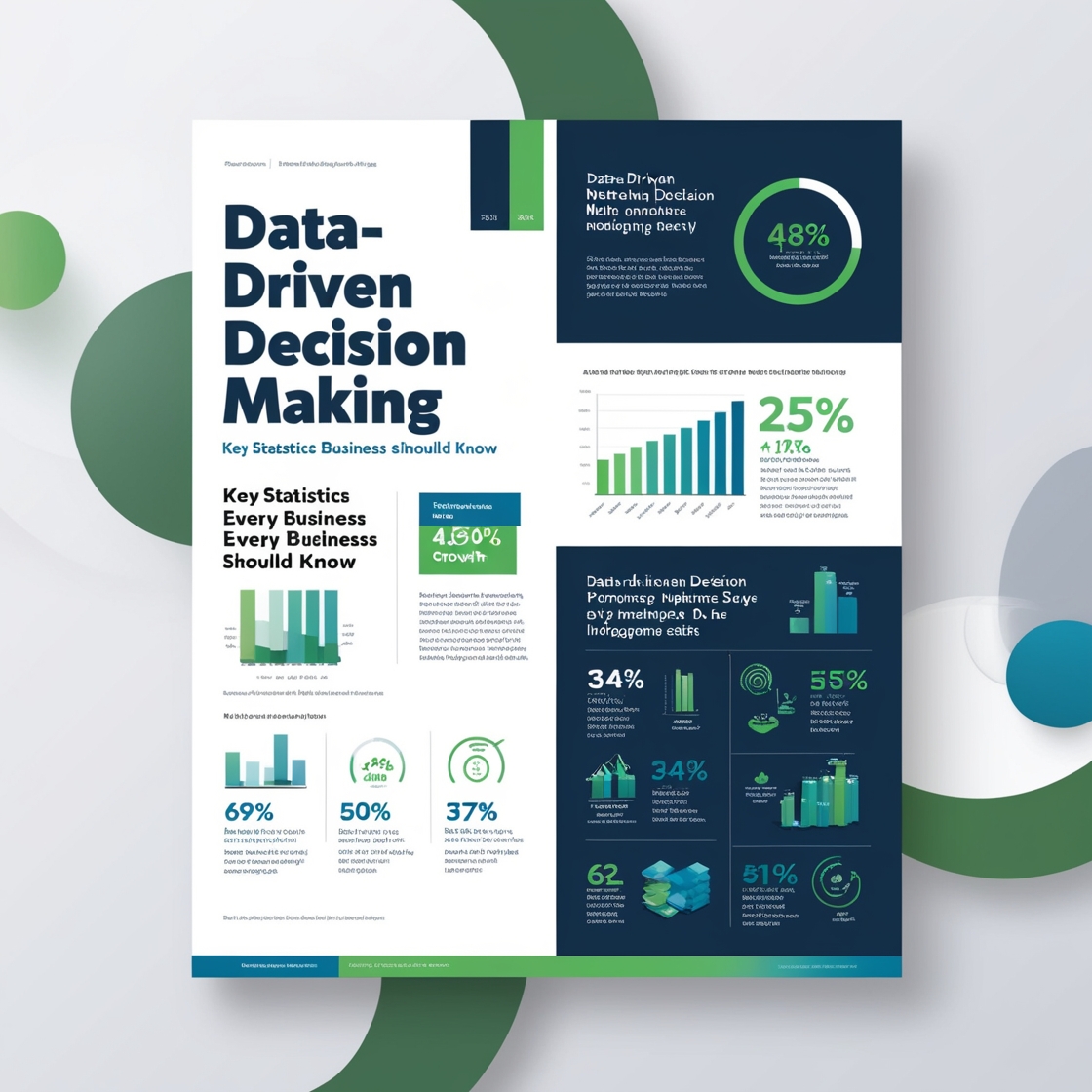Introduction
In today’s competitive landscape, data-driven decision-making (DDDM) has become crucial for business success. Companies that leverage data effectively are not only improving operational efficiency but also gaining valuable insights that can lead to better customer engagement, higher profits, and innovation. This article highlights some key statistics about data-driven decision-making that every business should be aware of.
1. Data-Driven Companies Are 23x More Likely to Acquire Customers
According to a study by McKinsey, companies that embrace data-driven strategies are 23 times more likely to acquire customers, 6 times more likely to retain those customers, and 19 times more likely to be profitable. This clearly demonstrates how data can drive business growth and competitiveness, especially when it comes to understanding and meeting customer needs.
2. Over 90% of Business Leaders Believe Data Is Critical
A survey conducted by PwC revealed that 91% of business leaders agree that data-driven decision-making is essential to their business’s future success. Despite this overwhelming consensus, many businesses still struggle to fully implement and leverage data-driven strategies effectively, often due to a lack of tools, infrastructure, or skills.
3. Organizations Using Data Are 3x More Likely to Report Significant Improvement in Decision-Making
Gartner found that companies utilizing data-driven decision-making processes are 3 times more likely to report a significant improvement in decision-making compared to those relying solely on intuition or experience. This reinforces the idea that businesses that prioritize data over gut feelings make more informed and confident decisions.
4. 46% of Companies Say They Struggle with Data Quality
Data quality is one of the biggest challenges facing businesses today. According to research from Experian, 46% of businesses say they struggle with poor data quality, which can significantly impact decision-making. Inaccurate or incomplete data leads to misinformed choices, resulting in wasted resources and missed opportunities.
5. 53% of Companies Use Data to Drive Innovation
More than half of companies—53% according to a Deloitte study—are using data to drive innovation within their organizations. This demonstrates that data isn’t just about improving existing processes or decision-making but also about uncovering new opportunities, markets, and business models that can lead to long-term success.
6. Data-Driven Marketing Can Lead to a 20% Increase in ROI
In a report from Google and Econsultancy, data-driven marketing was shown to deliver an impressive 20% increase in ROI compared to traditional marketing strategies. By using data to understand customer behaviors, preferences, and trends, businesses can optimize their marketing efforts and improve campaign effectiveness.
7. 87% of Companies Believe Big Data Will Redefine the Competitive Landscape
The vast majority of businesses—87%—believe that big data and analytics will reshape their industries in the coming years, according to NewVantage Partners’ Big Data and AI Executive Survey. This highlights the critical role that data will continue to play in the competitive landscape, pushing companies to invest in advanced analytics and data infrastructure.
8. Companies That Use Analytics Are 5x More Likely to Make Faster Decisions
Businesses that integrate data analytics into their decision-making processes are 5 times more likely to make faster decisions, according to BARC. The ability to rapidly interpret data and act on it gives these companies a competitive edge, allowing them to respond more quickly to market changes and customer demands.
9. 60% of Companies Have Increased Their Data Investment
A report by Forrester Research found that 60% of companies have increased their investment in data analytics and tools over the past few years. As businesses recognize the value of data, they are channeling more resources into improving their data capabilities to stay competitive and agile.
10. Only 26% of Companies Have a Fully Data-Driven Culture
Despite the clear advantages of being data-driven, only 26% of companies report having a fully data-driven culture, according to a survey by NewVantage Partners. This shows that while many organizations recognize the importance of data, there is still a significant gap between awareness and full adoption of data-driven practices.
Conclusion
Data-driven decision-making is no longer a luxury but a necessity for businesses aiming to thrive in today’s data-centric world. The statistics highlighted above emphasize the benefits of data-driven approaches, from improved decision-making to higher customer acquisition rates and increased innovation. However, businesses still face challenges, including data quality and cultivating a data-driven culture. By addressing these challenges and continuing to invest in data capabilities, companies can ensure they remain competitive in the evolving digital landscape.
